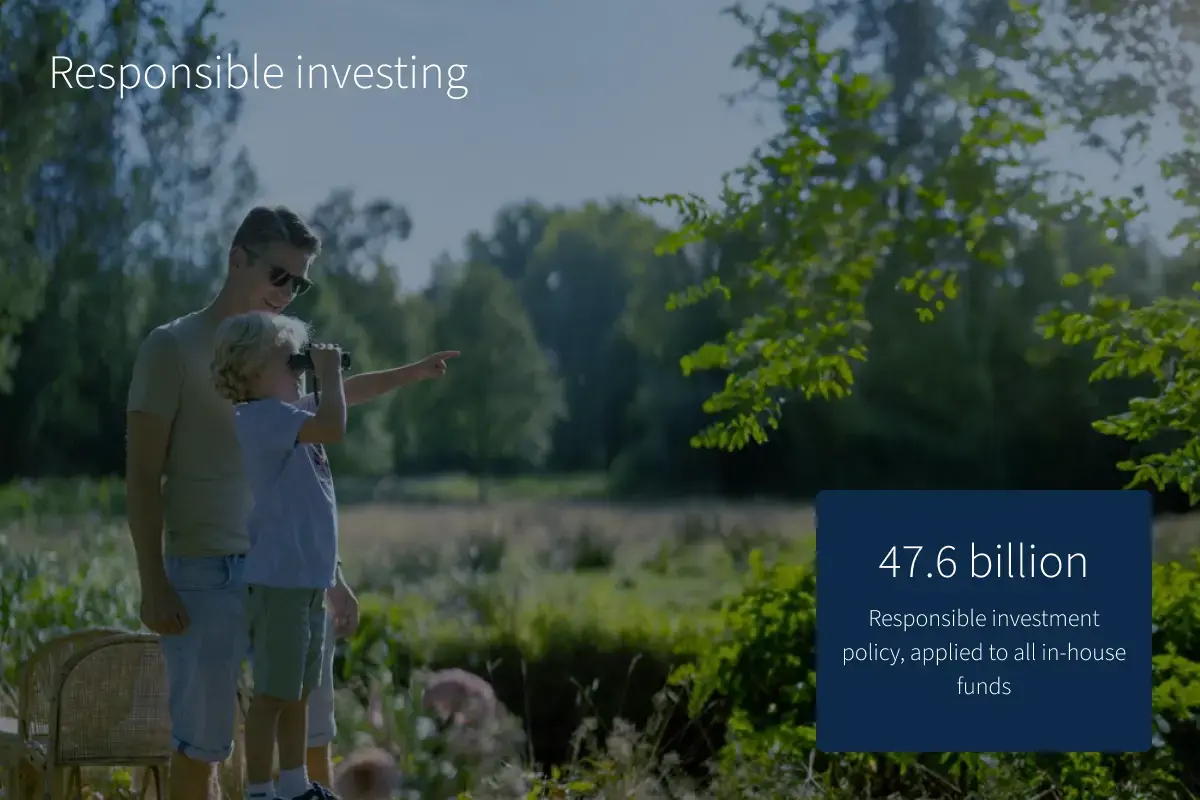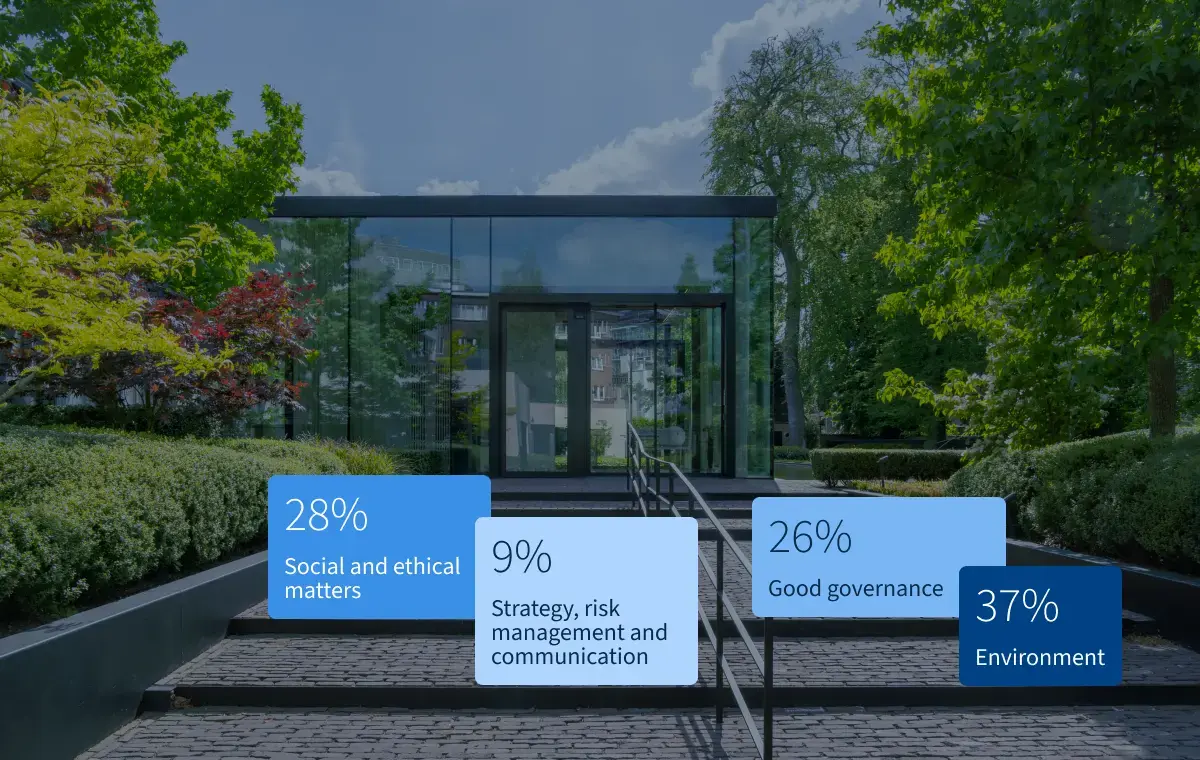Delen as a responsible investor
Delen Private Bank specialises in discretionary portfolio management, which means the bank invests assets in the name of and on behalf of its clients. Its investment decisions have a substantial impact on society.
At Delen Private Bank, Delen Private Bank Luxembourg and Delen Suisse, customers' assets are invested in investment funds when filling portfolios. All these investment funds, without exception, consistently apply the responsible investment policy.
Through its responsible investment policy, Delen Private Bank contributes to very different Sustainable Development Goals or SDGs, with responsible consumption and production (SDG 12) and climate action (SDG 13) being the main ones.
47.6 billion euro managed responsibly
Delen Private Bank invested €47.6 billion of its customer assets through the funds managed by Cadelam, the bank's fund manager.

.webp)
Our natural reflex to take care of valuables aligns perfectly with the ESG policy. The biggest lever, of course, lies with our sustainable investment policy.
Europe has set ambitious goals in the field of ESG (ecology, social responsibility, and good governance), and calls in part on financial institutions to take responsibility. These institutions are required to identify, assess, and monitor the ‘principal adverse impacts’—in other words, sustainability risks—of their investment decisions and advice, across all three ESG domains.
Through three pillars—integration (of non-financial criteria), dialogue (with companies to support their sustainable transition), and exclusion (of companies with excessive sustainability risks)—Delen Private Bank responds to the European legislator’s expectations to mitigate sustainability risks. We outline these pillars below.
Integration of non-financial criteria
For all investments in our in-house funds, we consider ESG parameters alongside the financial performance of companies. Environmental, social, and governance considerations are fully integrated into every investment decision.
A company's financial health is only sustainable in the long term if it also performs well on non-financial criteria. Independent data provider Sustainalytics has built a strong reputation over the past 25 years as a global leader in sustainability research. Sustainalytics analyses and rates companies based on ESG risks, using a scale from 100 to 0. The lower the score, the lower the ESG risk for the company.
Because Cadelam takes ESG factors into account when making investment decisions, our in-house funds have a low average ESG risk score.
Based on a company's ESG risk score, the bank can take one of two approaches when investing or considering an investment: either it engages in dialogue with the company to encourage sustainable improvement (the second pillar: engagement), or it excludes the company from all portfolios (the third pillar: exclusion).
Dialogue with companies to help support their sustainable transition
Engagement refers to the ongoing and constructive dialogue between the investor and the companies in which it holds a stake. As a shareholder, the investor (in our case, Cadelam) not only has a right to a share of the profits but also gains a degree of influence over corporate policy through voting rights.
Through constructive discussions and concrete commitments, Delen Private Bank and Cadelam encourage companies to actively pursue their transition toward a more ecological, socially just, and better-governed world.
Delen engaged in dialogue with 287 companies, representing 83% of the holdings in its portfolio.
83%
percentage of companies within equity portfolios with which dialogue is initiated
287
number of companies subject to engagement procedures
ESG topics addressed through engagement in 2024

Exclusion of companies with excessive sustainability risks
Selling or excluding companies from the portfolios is the most drastic measure in sustainable wealth management. When engagement—through dialogue or voting at the General Meeting—does not yield sufficient results, or when a company's sustainability profile shows a negative trend, divestment becomes necessary.
Over the past two years, we have internalized part of the analysis process, replacing exclusion lists provided by external parties. With the support of research firm Sustainalytics, this analysis has become more concrete and targeted.
Our fund manager, Cadelam, excludes five categories of companies: those involved in non-conventional weapons or tobacco, companies with severe ESG risks or climate-related sustainability risks, and companies that consistently violate the UN Global Compact principles.

Curious about Delen’s ESG performance as an organization
Environmental, social responsibility, and good governance are deeply embedded throughout Delen Private Bank. Our internal ESG policy focuses, among other things, on our employees and climate action.